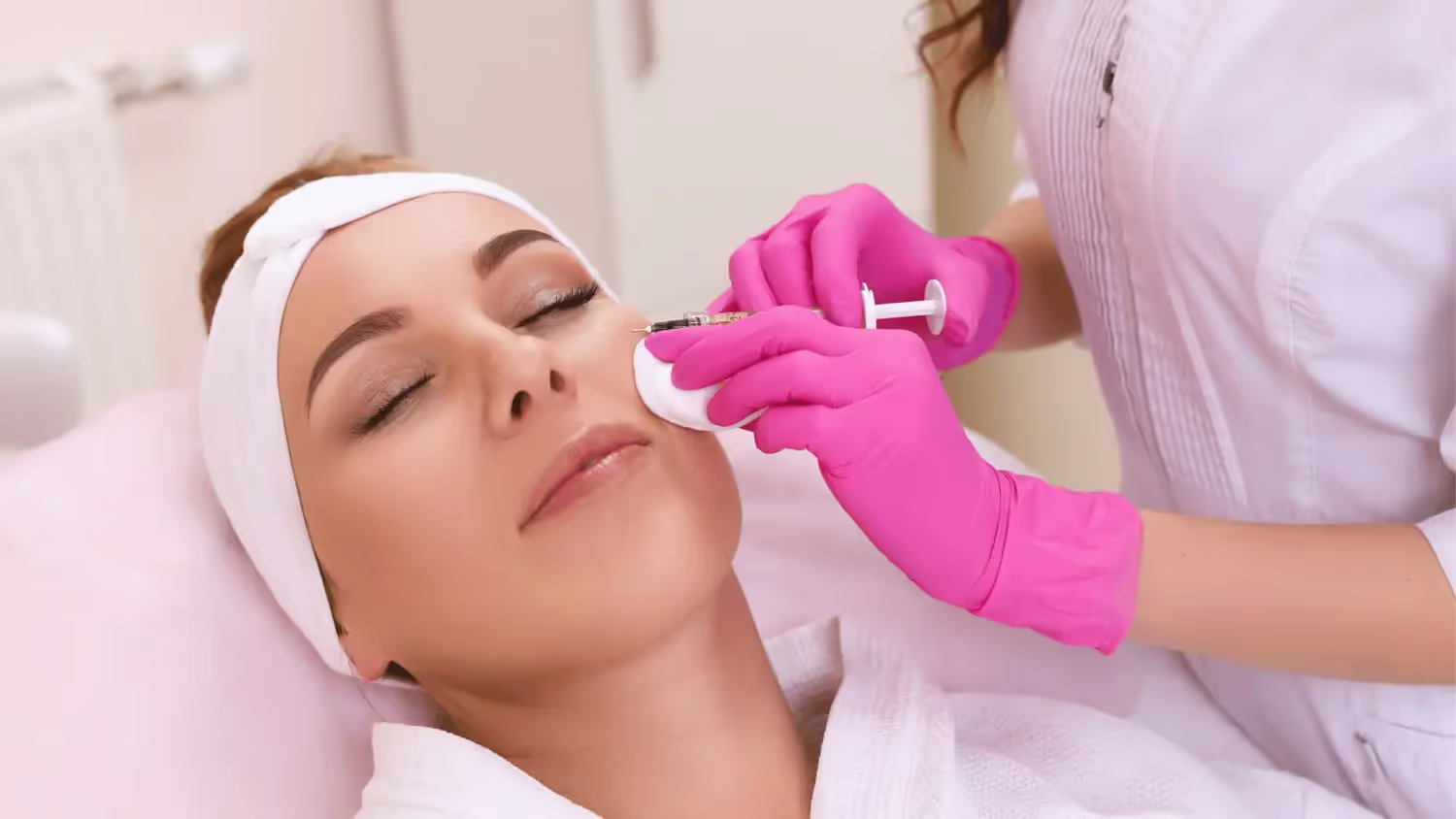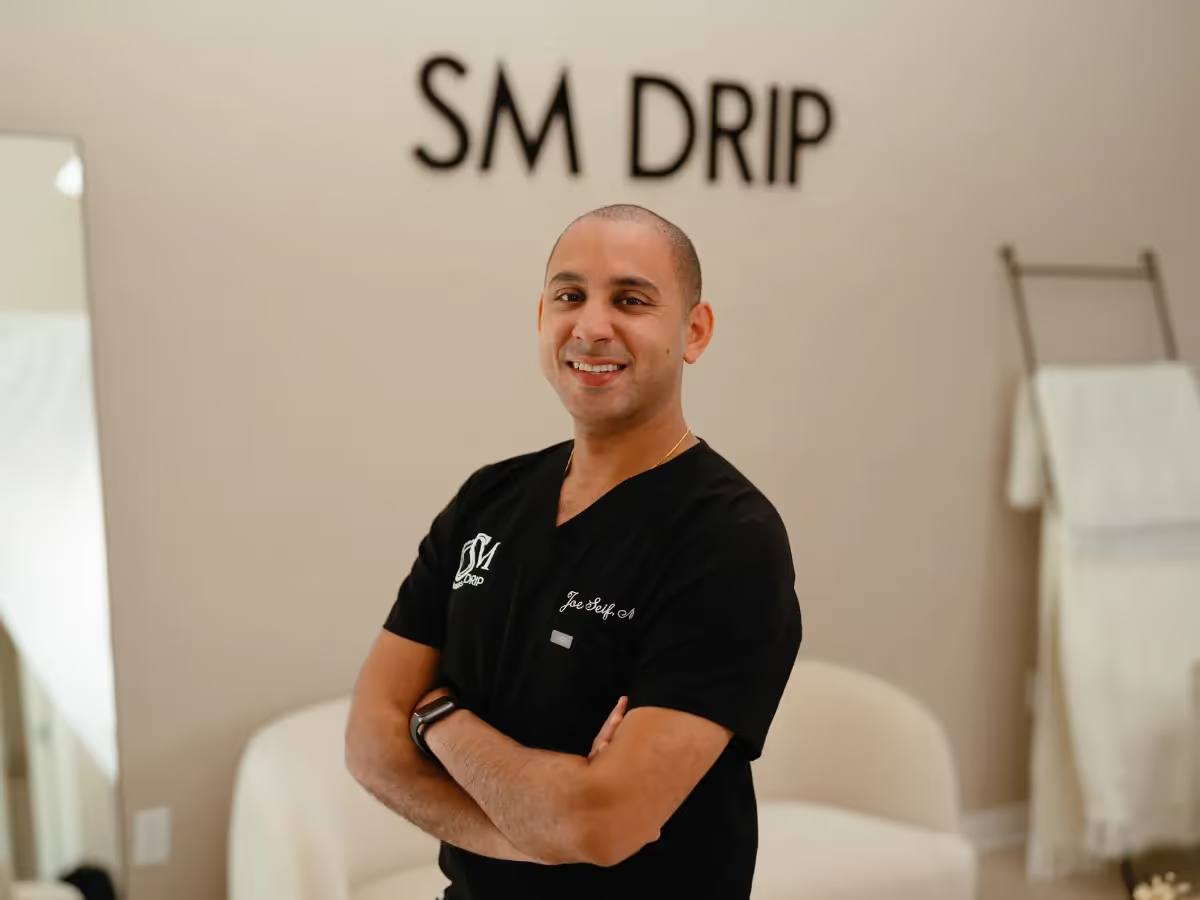Trained to perform non-invasive and minimally invasive cosmetic procedures, such as injectables, laser treatments, and chemical peels, aesthetic nurses work closely with patients to help them achieve their desired appearance and improve their overall self-confidence.
Delve into the world of aesthetic nursing and explore how these skilled professionals enhance natural beauty using a combination of science and art.
Nurses are the backbone of patient care, providing essential services that range from administering medication and performing diagnostic tests to educating patients and their families about their health. As the “front line” of patient care, nursing is undoubtedly fulfilling, but also a career which has become increasingly stressful in recent years, causing many nurses to consider retiring or changing jobs.
Today, a growing trend within nursing is to stay within the profession but seek out and explore better work conditions, like nursing specialties, that are more manageable and provide greater job satisfaction.
Aesthetic/cosmetic nursing is one such specialty gaining momentum. With regular hours, lucrative salaries, and a seemingly endless supply of patients seeking aesthetic treatments, the market for aesthetic nurses is booming. According to Indeed, the number of aesthetic nurse job searches per million skyrocketed by 134% in February 2022 compared to the same month a year ago.
So, whether you’re planning a career shift or looking to start your own med spa, aesthetic nursing could be a great option if you’re looking for flexible, lucrative, and rewarding nursing roles. This article will give you an in-depth overview of aesthetic nursing, including what aesthetic nurses do, the income they can earn, and the training and certification needed to become one.
What is aesthetic nursing?
Aesthetic nursing is a nursing specialty that focuses primarily on aesthetic and dermatologic procedures.
Aesthetic nurses are registered nurses (RN) or nurse practitioners (NP) who have pursued training beyond the basic nursing program. Aesthetic nurses are also called cosmetic nurses, esthetician nurses, esthetic nurses, and plastic surgery nurses.
Aesthetic nurses may be self-employed or work as employees at:
- dermatology offices
- outpatient clinics
- private clinics
- med spas
- cosmetic day hospitals
- skin surgery centers

What are the duties and responsibilities of an aesthetic nurse?
Aesthetic nurses perform similar duties and responsibilities to “traditional” nurses but specialize in aesthetic treatments and services. They generally perform a range of non-surgical cosmetic procedures. These include:
- Injections like Botox, derma fillers, and sclerotherapy
- Laser treatments like skin rejuvenation and hair removal
- Skin treatments like micro-needling and microdermabrasion
- Non-invasive body contouring procedures like radiofrequency and cold laser therapy
They may also assist physicians or cosmetic surgeons with various surgical procedures, including:
- Breast augmentation
- Liposuction
- Rhinoplasty
- Abdominoplasty
The typical job functions of a cosmetic nurse include:
- assessing patients’ body or skin-related health problems
- scheduling, consulting with and screening patients
- administering non-surgical procedures
- preparing patients before the procedure
- preparing and sterilizing the treatment area and instruments before procedures or surgeries
- providing pre-and post-operative patient care
- assisting physicians or surgeons during various cosmetic procedures or surgeries
- staying up-to-date with new protocols, treatment guidelines, and procedures
However, not all aesthetic nurses perform all these functions. Their specific roles and duties depend on the clinic, their skills and training, and the scope of practice defined by the state’s nursing board.
What is a nurse injector?

The scope of what an aesthetic nurse does is broad, and several subfields or subspecialties have emerged under this umbrella. One particularly well-known specialty is an aesthetic nurse injector, also called a nurse injector.
A nurse injector is an aesthetic nurse that specializes in cosmetic injection procedures like Botox and other neuromodulators (Dysport, Xeomin, Jeuveau) and/or dermal fillers.
How do I become an aesthetic nurse?
To become an aesthetic nurse, you must: first meet specific educational and licensing requirements to work as a registered nurse. You might also need additional training and certification to pursue advanced aesthetic nursing roles.
The first step is to earn your bachelor of science in Nursing (BSN). Many medical spas and clinics also hire nurses with an Associate Degree in Nursing (ADN). Licensed Practical Nurses (LPNs) may also perform some cosmetic procedures and can work in aesthetic clinics, depending on state regulation.
Once you have your degree, the next step is to take the National Council Licensure Examination for Registered Nurses (NCLEX-RN). All nursing graduates must pass this six-hour exam that gauges their skills and abilities to work as entry-level nurses.
After passing this test, the next step is to become licensed in the state where you want to practice. The requirements for granting RN licenses vary per state; some may also require criminal background checks on top of your educational requirements.
You should also check if your state is part of the nurse licensure compact (NLC). The NLC is an agreement between states which allows licenced nurses to practice in their home state and the states within the arrangement. To date, 39 states are in the compact.
What training/certifications do I need to be an aesthetic nurse?
If you’re planning to shift your specialization to aesthetic nursing, gaining experience in general surgery or plastic surgery is a good start. Shadowing aesthetic nurses, joining local and state aesthetic organizations, and attending aesthetic training seminars can also give you a head start in learning more about the field and what the job of an aesthetic nurse looks like.
Certification is not mandatory in aesthetic nursing, but it would be ideal to get certified as a Certified Aesthetic Nurse Specialist (CANS) by the Plastic Surgical Nursing Certification Board (PSNCB). CANS is a broad aesthetic-focused professional certification that can help demonstrate to your future clients or employers the clinical expertise necessary for providing safe, quality, evidence-based care.
This certification has specific eligibility criteria for obtaining certification through the PSNCB; this includes a current RN license in the US and practice hours and nursing experience in a nursing specialization.
You can also pursue further certification for each cosmetic procedure you plan to offer. The American Association of Aesthetic Medicine and Surgery (AAAMS) provides a wide range of training courses you can take depending on your experience level.
Some aesthetic training schools and institutions also offer certification courses to help you advance your aesthetic nurse skills. Options include:
- American Academy of Facial Aesthetics (AAFA)
- International Association for Physicians in Aesthetic Medicine (IAPAM)
If you want to take your skills and knowledge to the next level, becoming an Aesthetic Nurse Practitioner (ANP) is a great way to do so. To practice as an ANP, you must acquire a Master of Science in Nursing degree.
Can I go straight into aesthetic nursing out of school?
Yes and no. To practice as an aesthetic nurse, you must first have a nursing license and a license in the state you plan to work as an aesthetic nurse. Generally, licensing is one of the first things new nurses do after completing their nursing degree.
Also, some employers require their nurses to have specific certifications. Some certifications require hands-on experience or practice hours in particular fields, like plastic surgery.
How much do aesthetic nurses make?
How much an aesthetic nurse earns depends on the facility you work for, your location, educational level, professional experience, and specialized training you undertook.
Employed at a med spa
According to Zip Recruiter, the average salary of a medical spa nurse is $75,757, with some reporting salaries as high as $131,500. The pay range varies considerably, meaning years of experience, location, and skill level play a role.
As a med spa/MSO owner
On average, a med spa garners a 20 to 25% profit margin, meaning that a med spa owner can earn $300,000 to $375,000 annually.
Note that RNs generally cannot own a med spa but may establish one as a joint venture with a licensed doctor who will serve as the primary owner of the establishment. However, some states may allow non-physicians like nurse practitioners (NPs) to have partial or full ownership.
Related: Finding the Perfect Medical Director for your Med Spa
In Summary
Aesthetic nursing can be a rewarding and lucrative career for someone with training and education in nursing and an interest in aesthetic medicine. The essential requirements for aesthetic nurses are licensure and appropriate board certifications. Then, specialized training can put you ahead of the competition and increase your earning potential.
With the increasing demand for non-invasive cosmetic treatments, now is the right time to invest in your career and evaluate if aesthetic nursing is the right direction for you.
If you feel that pursuing aesthetic nursing is part of your step toward launching a med spa, Moxie can help. From selecting an ideal location to developing your brand, our team of experts can guide and support you throughout your journey. Learn More About Moxie and How We Work >
*This article is intended to provide a general guide on what professional licenses and conditions are needed to operate a practice or perform certain treatments. This information alone does not authorize, certify, or confer the ability of anyone to perform these treatments, practice outside their scope, or violate the corporate practice of medicine.
While based on currently available information, the rules and policies on scope of practice issues and ownership can, and do, change frequently. Specific training, education, supervision, protocol and regulatory requirements will differ depending on each person's situation in their state. Therefore, each person must examine their own professional situation, skill level, regulating board guidance, and scope of practice before proceeding.
You should not act upon this information without seeking knowledgeable legal counsel that takes into account the laws of your specific jurisdiction. All uses of the content of this site, other than personal uses, are prohibited.
When you're ready to take the next step in launching or growing your aesthetic practice, here are 3 ways Moxie can help:




